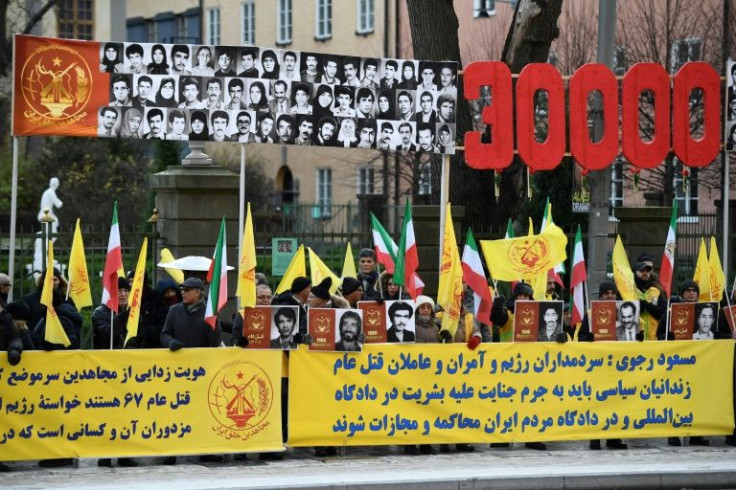Swedish Court Jails Ex-Iran Official For Life Over 1988 Executions
A Swedish court on Thursday handed a life sentence to former Iranian prison official Hamid Noury for crimes committed during a 1988 purge of dissidents, in the first trial related to the mass executions.
Noury, 61, was convicted of a "serious crime against international law" and "murder", the Stockholm district court said in a statement.
According to the court, Noury was an assistant prosecutor in a prison near Tehran at the time of the events.
"The investigation has shown that the accused, jointly and in collusion with others, participated in the commission of the criminal acts," the court said.
It said he "retrieved prisoners, brought them to the committee and escorted them to the execution site".
The proceedings, which have been running since August 2021, have strained relations between Sweden and Iran, and Tehran on Thursday dismissed the verdict as "political".
A statement from Iran's foreign ministry condemned the case saying it consisted of "unfounded and fabricated accusations against Iran and its judicial system".
The case related to the killing of at least 5,000 prisoners across Iran, allegedly ordered by supreme leader Ayatollah Khomeini, to avenge attacks carried out by exiled opposition group the People's Mujahedin of Iran (MEK) at the end of the Iran-Iraq war of 1980-88.
Noury was sentenced both for his role in the killings targeting the MEK and for participating in a second wave directed at "left-wing sympathisers who were deemed to have renounced their Islamic faith", the court said.
The charge of "a serious crime against international law" related to the first wave and the "murder" charge related to the second.
"It feels very, very important that we have a conviction today," public prosecutor Martina Winslow told AFP, noting that the crimes dated back decades.
"There is no one that has been convicted anywhere in the world for participating in these mass executions."
Throughout the trial Noury argued that he was on leave during the period in question, and said he worked in another prison, denouncing the accusations as a plot by the MEK to discredit the Islamic Republic.

Noury's lawyer Thomas Soderqvist told AFP they were "disappointed" and said they would appeal the verdict.
Noury was arrested at a Stockholm airport in November 2019 after Iranian dissidents in Sweden filed police complaints against him.
During the trial, MEK supporters protested loudly outside the Stockholm courthouse, and a few hundred had gathered ahead of the verdict.
"We won this time," protesters chanted as they cheered and waved flags after the verdict.
"This is a historic day, both for Sweden and Iranians that have fought for democracy," Mehri Emrani, a 61-year-old MEK supporter who served time in prison herself and whose husband was a plaintiff, told AFP.
"This is not only against Hamid Noury, this decision is against the whole regime in Iran," Kenneth Lewis, a lawyer for the plaintiffs, told reporters.
The trial has rendered Stockholm's already chilly relations with Tehran even frostier.
This is partly because rights activists accuse senior Iranian officials now in power -- including current President Ebrahim Raisi -- of having been members of the committees that handed down the death sentences.
The so-called "death committees" are thought to have sent at least 5,000 to be executed. The MEK puts the figure as high as 30,000 victims.
Raisi himself has denied ever having been part of these committees.
Tehran has repeatedly called on the Swedish government for Noury's release.
Concerns have been raised about reprisals against Western prisoners held by the Islamic regime, as two Swedish-Iranian citizens are on death row, with the main concern being academic Ahmadreza Djalali.
Following a recent spate of arrests of Europeans in the country "for no apparent reason", Sweden has advised citizens against travel to Iran since late June.
© Copyright AFP 2024. All rights reserved.







